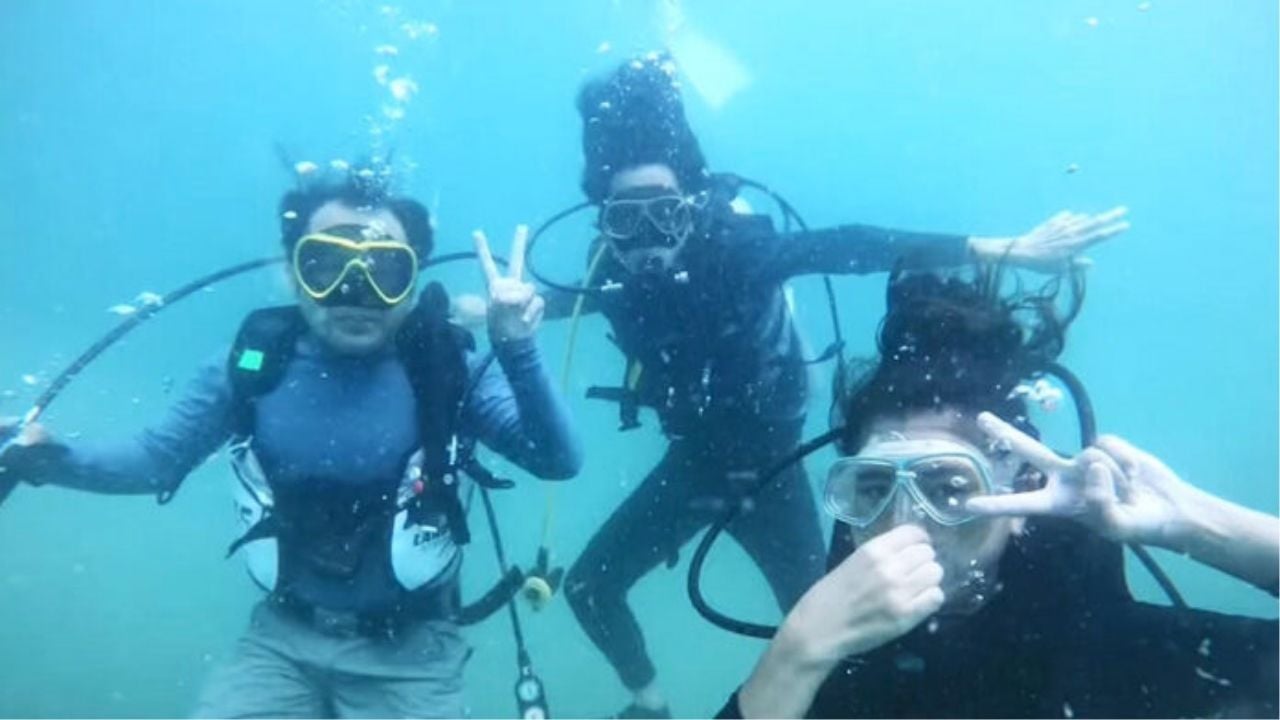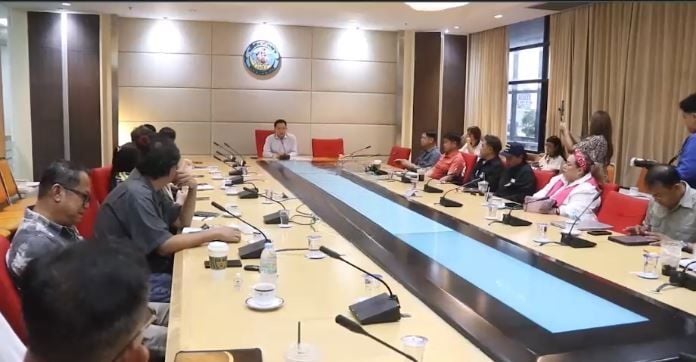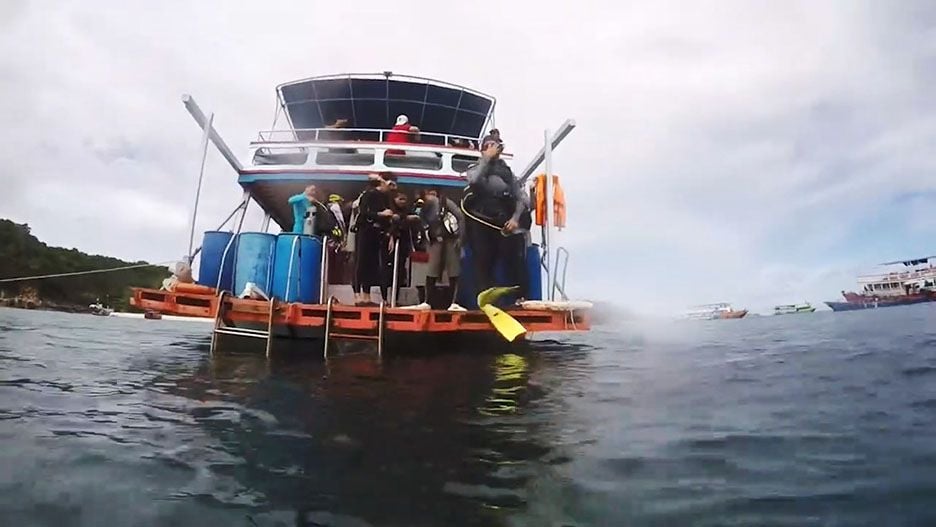Pattaya to issue sea walker permits to protect marine life
New regulations aim to balance tourism growth with eco-protection

Pattaya will become the first Thai city to issue sea walker permits, aiming to regulate the activity, protect marine life, and ensure tourist safety.
Launching next month, the move aims to strike a balance between marine conservation and sustainable tourism, as the underwater activity gains popularity with tourists around the world.
Sea walker tourism lets visitors walk on the seabed wearing transparent helmets connected to oxygen lines from boats above. Participants descend 7 to 10 metres for 15 to 20 minute sessions, breathing normally while observing fish and coral.
Yesterday, September 9, 10 local operators met with city officials at Pattaya City Hall to finalise the permit process. The meeting was chaired by Deputy Mayor Wuthisak Rermkij, with Pornpirom Seuadaeng, Director of Environmental Health Promotion, also in attendance.

Officials presented a draft containing 19 key requirements that operators must meet before receiving permits.
Among them, applicants must be Thai nationals with pre-registered businesses and hold valid tourism licences. Sea walker zones will be limited to areas approved by the Department of Marine and Coastal Resources (DMCR).
Boats used in the operation must meet Marine Department safety standards. All diving and life-saving gear must be certified and in proper working order. Operators will also need to complete certified training.
Currently, sea walker tours in Pattaya are offered at 1,600 baht per person across 19 locations. Each boat can operate at two spots, depending on tidal conditions, using 30×30 metre zones fitted with underwater platforms and barriers.

To reduce environmental impact, activities have moved away from coral reefs and into open-sea zones with controlled depth, typically around 5 to 7 metres, reported KhaoSod English.
City officials plan to establish a dedicated monitoring committee once the permits are issued. The panel will be responsible for inspecting service quality, equipment safety, and environmental compliance.
“This is an important step in ensuring that marine tourism doesn’t come at the expense of the ecosystem.”
Latest Thailand News
Follow The Thaiger on Google News:


























